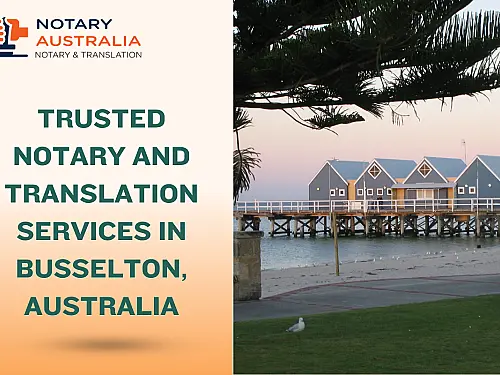



Can a Notary Public Refuse to Notarize? Know the Legal Grounds
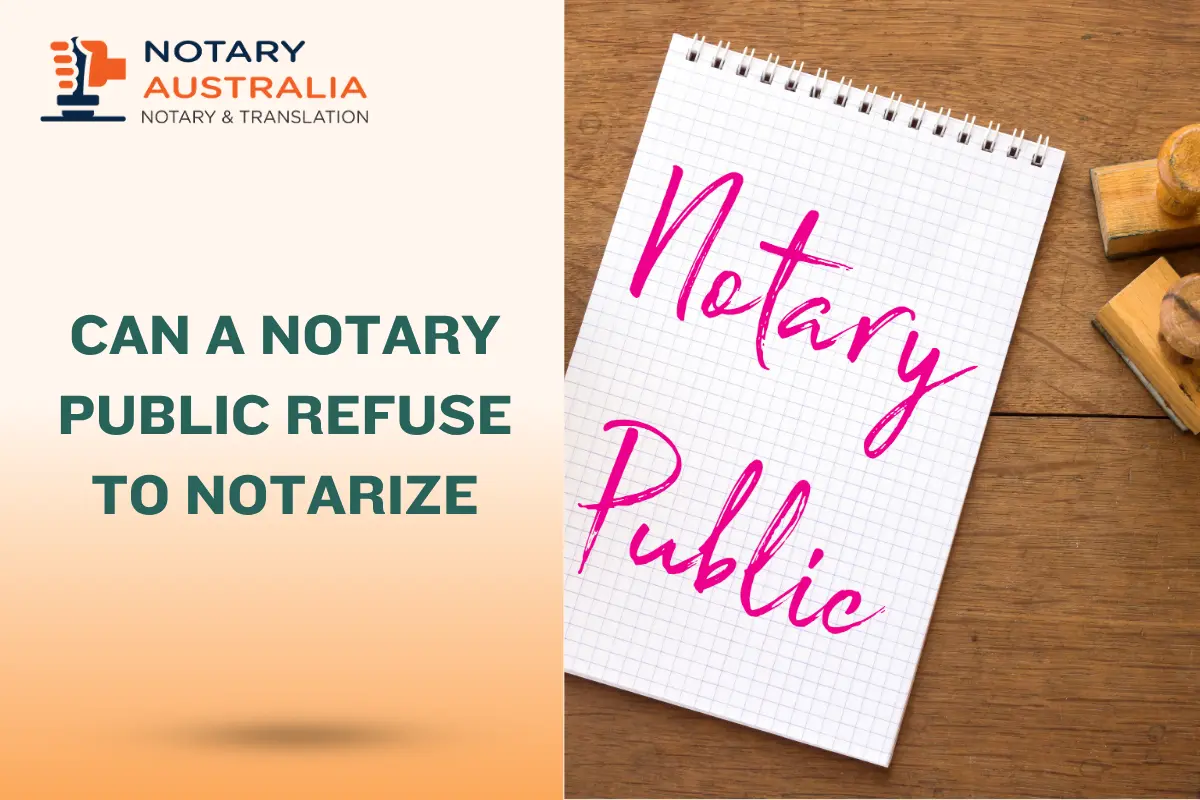
Table of Contents
Notaries play a vital role in verifying the authenticity of documents, identities, and signatures. However, many people assume that once they approach a notary public, their document will be notarized without question. That’s not always the case.
So, can a notary public refuse to notarize? The answer is yes—and in fact, they’re legally and ethically required to do so in specific circumstances. In this article, we break down the top reasons why a notary might say no, how to avoid common mistakes, and what legal protections both you and the notary have.
When Can a Notary Refuse to Notarize?
Notaries are empowered to act as impartial witnesses, but they also have a duty to uphold the law. Here's when a notary can—and must—refuse to notarize.
1. Invalid or Unacceptable Identification
A notary must confirm the identity of the person signing the document. If the signer presents:
- An expired ID,
- A fake or forged ID,
- No identification at all,
then the notary has the right to refuse.
2. Incomplete or Blank Documents
Notaries cannot notarize documents that are:
- Incomplete,
- Contain blank sections,
- Lacking essential details like names, dates, or clauses.
This prevents fraud or future document tampering.
3. Lack of Understanding or Coercion
If the notary suspects that the signer:
- Is not mentally competent,
- Doesn’t understand what they’re signing,
- Is under duress or coercion,
they must decline to proceed.
Legal Grounds for Refusal
Notary Laws and Ethics in Australia
In Australia, notaries are appointed by the Supreme Court and are typically experienced legal professionals. Their duty is not just administrative—it is legal. Refusing notarization is not optional when:
- The act would breach the law,
- There’s a conflict of interest,
- Fraud is suspected.
Each state may have slightly different guidance, but core ethical standards apply nationwide.
Common Scenarios When Refusal Happens
Invalid ID or Language Barriers
If a notary cannot communicate clearly with the signer due to language issues and no qualified translator is present, they may refuse.
Document Origin and Jurisdiction
Notaries are only authorized within certain territorial jurisdictions. For example:
- A notary in Victoria may not notarize documents for jurisdictions they’re not recognized in.
- Overseas documents may require specific apostille or embassy processes.
Emergency and High-Risk Situations
During times such as the COVID-19 pandemic or in hospitals or detention centers, notaries may refuse to attend due to health risks or lack of proper facilities.
Can a Notary Refuse Based on Personal Beliefs?
Yes—but it’s complicated.
A notary may decline services if:
- The content of the document conflicts with their religious or moral beliefs,
- It poses an ethical dilemma or violates their conscience.
However, they must not discriminate based on the signer’s race, religion, nationality, gender, or legal status. Doing so could lead to legal complaints or loss of their notarial license.
Business and Corporate Documents
When Notaries Refuse Commercial Documents
A notary might say no to:
- Corporate documents without proper authorization,
- Business representatives without board resolutions or identity,
- Contracts lacking essential legal clauses.
In these cases, it’s not just about refusal—it’s about ensuring the document is legally enforceable and ethically signed.
Digital Notarization and Remote Refusals
With the rise of remote notarization:
- A notary may refuse if the video connection is poor,
- The signer’s identity cannot be verified,
- The signer is not in the correct jurisdiction for e-notarization.
Always check the platform and guidelines before booking an online session.
Refusals Based on Client Misconduct
A notary may deny services if the signer is:
- Intoxicated or under the influence of drugs,
- Abusive or threatening,
- Attempting to commit fraud.
Professional conduct is a two-way street.
Legal Liability and Professional Risk
Notaries face serious consequences for wrongful notarization:
- Fines,
- License revocation,
- Legal action.
Therefore, they are encouraged—and sometimes required—to refuse when something appears legally risky or non-compliant.
What Should You Do If a Notary Refuses?
- Ask why – Notaries are obligated to explain their refusal clearly.
- Correct the issue – Bring valid ID, complete your form, or provide supporting documents.
- Seek alternatives – Some issues can be solved by:
- Having another person present,
- Providing certified translations,
- Booking a different type of notary (e.g., one with international authority).
Can You File a Complaint Against a Notary?
Yes, if you believe a refusal was unlawful, discriminatory, or unethical. You can:
- Lodge a complaint with the state legal services board,
- Contact the law society of your state,
- Leave a formal review (if a commercial notary service).
But always ensure your own documents, conduct, and ID were valid to begin with.
Summary: When a Notary Can Refuse
| Reason for Refusal | Valid? |
|---|---|
| Invalid ID | Yes |
| Incomplete or blank document | Yes |
| Suspicion of fraud | Yes |
| Coercion or lack of understanding | Yes |
| Conflict of interest | Yes |
| Discriminatory refusal | No |
| Personal dislike or bias | No |
| Signer misbehaving or intoxicated | Yes |
| Expired appointment or no show | Yes |
Final Thoughts
Notarization isn’t just a stamp—it’s a legal act that must meet strict criteria. If a notary refuses to notarize, it’s often for a valid, legal reason designed to protect both the signer and the public.

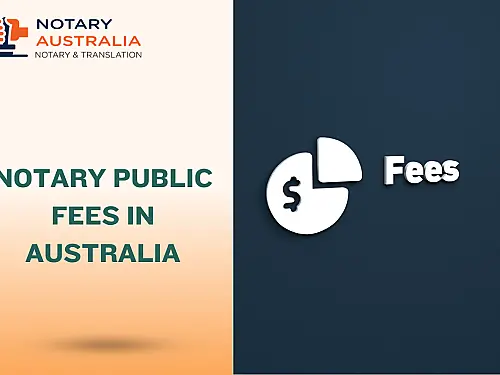

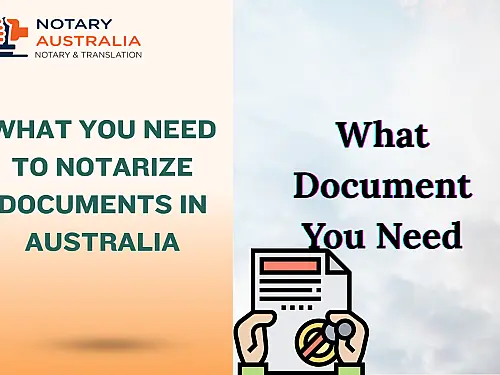
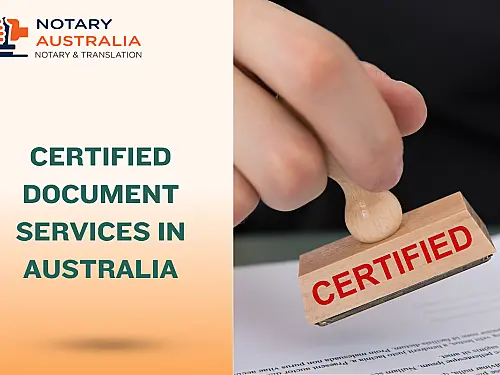
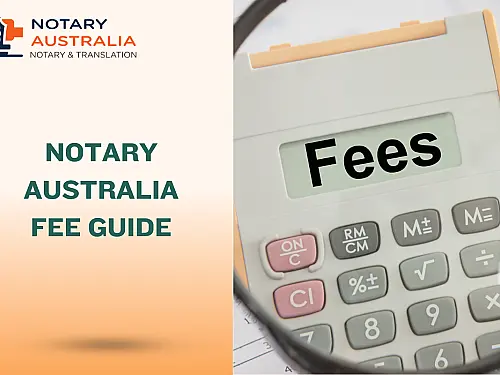

-thumb.webp)


